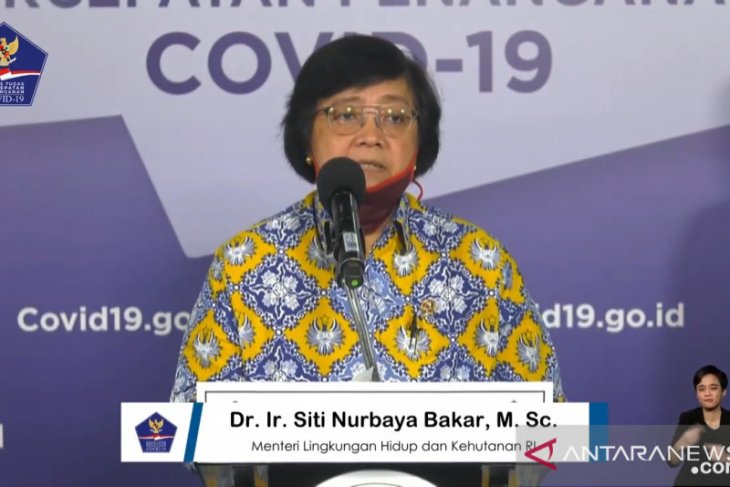Live Streaming
Program Highlight
Company Profile
Government Sees Dramatic Increase in Forest Fires in Aug-Sep
Written by Ani Hasanah
Minister of Environment and Forestry, Siti Nurbaya Bakar. (ANTARA/Muhammad Zulfikar)
Indonesian Minister of Environment and Forestry, Siti Nurbaya Bakar, said the Indonesian government is anticipating a potential explosion in forest and land fires in the months of August and September this year.
"We have studied both climate behavior and hotspot behavior and also the timing of the forest fire explosion, which averaged the second week, the third week, to the first week of September," Siti said after a limited meeting with the President at the Jakarta Presidential Palace on Tuesday.
Siti said that based on monitoring in northern Sumatra, Riau, and Aceh, and parts of North Sumatra, there are normally two critical phases in the occurrence of forest fires.
The first phase occurs in March-April, while the second phase falls in June-July, and peaks in August-September, she explained.
Rain engineering using weather modification can help mitigate the crisis, she averred. Rain engineering can be performed based on the analysis of the Meteorological, Climatology and Geophysics Agency and carried out by the Agency for the Assessment and Application of Technology, with the support of Air Force aircraft, she continued.
“That (weather modification) can be done and we have passed the first crisis phase in Riau," said Siti.
She said the first phase was very important because it coincided with the COVID-19 pandemic and Eid al-Fitr.
The concerned institutions carried out weather modification in several places, such as Sumatra (May 13-31, 2020), to control smoke from wildfires during Eid al-Fitr, she informed.
“So, there is a correlation between the modification of rain (and generation of smoke), so the clouds are engineered to be induced, so that they have a lot of water vapor, so that they produce rain. The rain wets the peat and fills the reservoirs, so there is no smoke," she explained.
There are plans to carry out weather modification again in Kalimantan, she stated. Based on BMKG's analysis, hotspots in Kalimantan will be strong with the onset of the dry season in July. The hotspots will peak in late August to early September.
“Hopefully, this (weather modification) can be a solution. Rather than continuing to extinguish it (forest fire), with this, we can systematically prepare for it," she said.
Meanwhile, the central government is also coordinating with regional governments to protect forest areas and strengthen the monitoring system of the National Police. (ANTARA)



